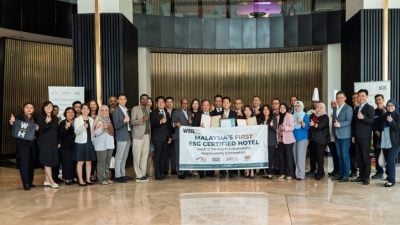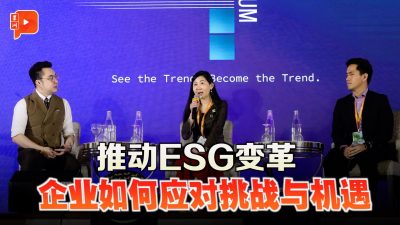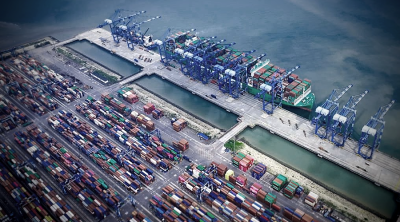
SME Malaysia national president Ding Hong Sing told Sin Chew Daily recently that Minister of Investment, Trade and Industry Tengku Zafrul is expected to announce the policy and framework for environmental, social, and corporate governance (ESG) early next month in preparation for the carbon reduction laws of EU Carbon Border Adjustment Mechanism (CBAM) and the US Community Choice Aggregation (CCA). There should be no more deferment for Malaysian companies to implement the ESG policy in full.
It is not easy to implement these three key indicators for sustainable corporate development, especially for SMEs which are relatively small in operation scale and where business owners have little knowledge of ESG. Additionally, SMEs also lack adequate manpower and resources to establish, execute, evaluate, and continue to improve on these indicators. As a consequence, they may have to rely on the government to release the development blueprint as well as relevant regulations, evaluation benchmarks and human resource training to facilitate their ESG implementation.
The Financial Times Lexicon defines ESG as “a generic term used in capital markets and used by investors to evaluate corporate behavior and to determine the future financial performance of companies.” In other words, if a company places adequate emphasis on ESG, it will have a comparatively healthy system and more sustained long-term business performance. ESG is yet another yardstick to gauge a company’s health in addition to financial indicators. After the ESG development blueprint has been published, key personnel in listed companies across the nation will have to go through fresh training, and this is expected to materialize before the end of the year, with the objective of prompting more Malaysian companies to incorporate ESG into their operation and risk management planning.
ESG covers a very extensive scope and can work alongside existing international certifications such as ISO 9000:2015 quality management systems, ISO 14001 environmental management systems, and ISO 26000 social responsibility guidance, among others. If a company has already implemented the relevant certifications, once the government’s ESG framework is up and running, all it needs is to integrate the systems (revise the existing systems to comply with ESG specifications). A company that is unfamiliar with the aforementioned certification standards will invariably come under tremendous stress in corporate transformation and upgrading. That said, a crisis is also an opportunity in disguise, as it will eventually elevate a company’s positioning once it manages to put ESG into full implementation over time.
ESG awakens the human race to the criticality of pursuing zero emission goals in preventing further global warming.
Ding Hong Sing, himself a participant in the drafting of the ESG framework, said the regulations and benchmarks adopted in Malaysia’s ESG certification will not completely follow the standards set by the West, but will be implemented in stages in accordance with the prevailing circumstances of this country.
While progressive implementation is definitely a good thing, how are companies uninformed of the certification system going to make the first move? Government support–including budgetary allocations for personnel training, and subsidies for consultation expenditure during the initial phase of implementation– is of paramount importance.
At this juncture, companies in other countries tend to focus more on environmental management and corporate governance, and overlook the social responsibility part in executing ESG. In Taiwan, SMEs on the island had limited knowledge about ESG during the early phase of its implementation, coupled with the complexity of the benchmarking and evaluation process, resulting in these companies lacking a clear and distinct direction in ESG execution. Developing ESG became particularly challenging for companies with relatively scarce resources. As a result, achieving ESG goals was an uphill task for many.
In view of this, the Malaysian government’s development blueprint and benchmarks for the reference of local businesses will indeed help avert such initial glitch.
A global consensus was reached during the November 2021 COP26 in Glasgow to achieve the zero emission goal by the year 2050. Pursuant to that, many global conglomerates such as Apple, Microsoft, Nestlé and Coca-Cola declared their own zero emission timetables. Investing in emission cut initiatives for sustained development has therefore become an inevitable issue for companies around the globe.
If Malaysian companies reject, or lack the ability to embrace ESG transformation, they will not only lose out the highly lucrative green market, but also the opportunity to supply to multinationals, while facing the CBAM carbon tax for goods imported into the E.U.
While companies may feel the stress from ESG, it nevertheless awakens the human race to the criticality of pursuing zero emission goals in preventing further global warming. As such, companies and individuals can no longer adopt an indifferent attitude, for time is running out fast!
ADVERTISEMENT
ADVERTISEMENT







































